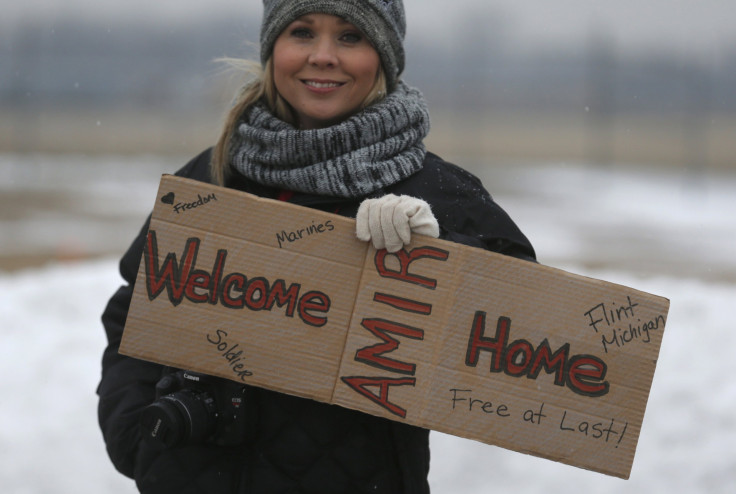Iran-US Prisoner Swap: Release Of $1.7B To Tehran Triggers Allegations Of Ransom Payment

A financial transaction in which the United States released $1.7 billion in funds to Iran has come under the spotlight after a top Iranian military official alleged that the money was a ransom to secure the release of five American hostages. The release of the American prisoners Sunday in exchange for seven Iranians charged and convicted in the U.S. coincided with the implementation of a historic nuclear deal between the two nations, under which several international economic sanctions against Iran were lifted.
“There’s no way the recent events occurred randomly,” Mike Pompeo (R. Kan.), who reportedly wrote to U.S. Secretary of State John Kerry earlier this week to ask about the $1.7 billion payment, told the Wall Street Journal. “We will do our best to find out if this was in our interest.”
U.S. government officials say that the $1.7 billion released to Iran was related to an arms sale agreement between Iran’s last monarch Shah Mohammad Reza Pahlavi — who was ousted during the Islamic Revolution in 1979 — and the Jimmy Carter administration. The delivery of weapons by American companies to Tehran under a $400 million deal, however, never happened, leading to a protracted legal battle between Iran’s new leaders and the U.S. government.
In 1981, Tehran and Washington established an arbitration court at The Hague to settle this and other financial disputes related to the shah’s 38-year reign. The Iranian government had repeatedly demanded billions in compensation, including interest accumulated over the years, in addition to the original $400 million.
And, on Sunday, the U.S. State Department announced that Washington had agreed to settle and pay $1.3 billion interest on top of the original deal value.
However, concerns over whether the payment amounted to ransom arose after Mohammed Reza Naqdi, commander of the Iranian Basij paramilitary force, said that the transaction was unrelated to the implementation of the nuclear deal and that the money was released “in return for the release of the American spies” — a claim rejected by the White House and State Department officials.
“There was no bribe, there was no ransom, there was nothing paid to secure the return of these Americans,” Mark Toner, State Department deputy spokesman, said Wednesday, adding that the $1.7 billion paid to Iran was part of a separate arrangement related to the U.S.-Iran claims tribunal at The Hague.
“This is a longstanding mechanism that was put in place, I think, pursuant to the Algiers Accords on Jan. 19, 1981, and was set up specifically to resolve claims between the two countries and their nationals against each other,” Toner said. “A large number of claims still remain to be resolved, but this settlement is one of a series of claims that we’ve been discussing over the last couple of years.”
© Copyright IBTimes 2025. All rights reserved.





















